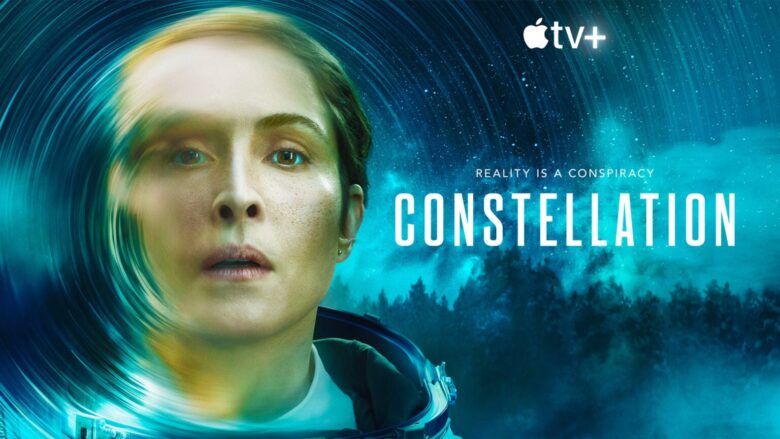[ad_1]
Apple TV+ pumped up its reputation as a hub for thought-provoking and visually stunning science fiction with Constellation, a series that’s part sci-fi, part horror and part family drama. The intricately plotted space thriller’s season finale airs Wednesday. And, as the season concludes, the show must clear a high bar to make the ending ring true.
After all, hit TV mysteries like Lost disappointed lots fans with their finales. And those same sci-fi fans (and their kids) are sick of being disappointed.
Apple TV+ space thriller Constellation must stick a tough landing in season finale
Apple TV+ hit series Constellation makes for an unusual blend of genres, merging elements of space adventure, horror, mystery and family drama. Drawing inspiration from quantum physics, the narrative visits different timelines across possible universal dimensions.
The show’s characters unknowingly shift dimensions while the viewing audience is expected to keep up. It’s complex and, at times, almost unbelievably confounding.
The series is flat-out weird, actually. After its start with a relatively straightforward-seeming space collision, the show immediately challenged all of us non-physicists.
Right away, it became a bit of a nightmare for me. Almost from the beginning, questions about when and how Constellation would answer its mysteries started to mushroom beyond seemingly possible explanations.
Like no other spacefaring TV or film story I can recall, this one seems to imply space makes those who return from it insane (though a colleague pointed out that 1940s sci-fi story Scanners Live in Vain explores a similar theme). Constellation brings the crazy, in part, by adding darkly atmospheric situations and horror tropes to hard-core science. Sure, space is dangerous. But maybe it’s also maddening.
Can a TV show reach this high, implying a multidimensional reality, without falling on its face? And if I ask this question in another dimension, does it seem less ludicrous?
Other dimension-crossing shows take themselves lightly, mostly
Constellation is not the first show to cross dimensions with varying levels of success. See Dr. Who, Fringe, Sliders, The Man in the High Castle and others, plus plenty of movies. But with Constellation, there’s an underlying seriousness that makes me nervous. When a show takes itself seriously, won’t it be hard to watch if it fails to adequately explain its plot? (There’s already talk of a second season of Constellation, by the way.)
In other words, when a show plays with quantum mechanics, with chraracters crossing dimensions and striving to understand the underlying confusion, it had better be revelatory. It should at least try to explain how things shown on the show are happening. If somebody wakes up at the end, implying in a cliched way it was all a dream or a coma, well, that won’t be acceptable.
Peter Harness created the show. Directors Michelle MacLaren, Oliver Hirschbiegel and Joseph Cedar brought it to life. Can they nail the Constellation season one finale?
Crossing realities with Constellation

Photo: Apple
Constellation tells the story of Jo Ericsson (played by Noomi Rapace), a Swedish astronaut on an International Space Station crew. Among other endeavors, they seem to be working on a mysterious NASA experiment. But a collision in space in the opening episode leads to disaster.
The show’s nonlinear narrative jumps between Ericsson’s time on the ISS and her life after she returns to Earth. Despite knowing that she survives her ordeal in space, viewers are kept on the edge of their seats as her harrowing experiences unfurl. She comes home telling one story, yet everyone seems to believe another. And later, still other narratives crowd in.
She believes she went on a spacewalk and found a dead female cosmonaut crashed into the ISS. (The corpse drifts off into space.) But no one else finds her story of a dead Soviet credible. At the time, I joked with colleagues that the dead Russian woman would actually turn out to be Ericcson herself. That’s how weird the show seemed, and it still does. But after watching subsequent episodes of Constellation, it seems more likely the cosmonaut’s death was covered up. I wonder if it could be Irina Lysenko (Barbara Sukowa), now a top Rosocosmos administrator (in at least one reality; maybe in another one she died).
And that’s just one loose end the Constellation season one finale needs to clear up.
Back on Earth with her husband, Magnus (James D’Arcy), and daughter, Alice — spookily played by twin sisters Rosie and Davina Coleman — Ericsson’s memories trick her. They hint at disconnects between her current reality and her past. Why does her husband believe she despises him? Isn’t their Volvo red, not blue? Why does the European Space Agency director think he and Ericsson are in love? Something is horribly wrong.
Soon enough, Jo’s disorientation gets worse. And it becomes clear it’s not just her. It seems to affect everyone who ever ventured into space. They’re asked to take pills to combat the trouble. Ericsson finds out those pills aren’t just the vitamins they’re claimed to be. They’re antipsychotics. In her case, at least, it’s lithium.
And the show goes further, showing Ericsson in a scene where she sees people who can’t see her. They appear to be in different dimensions.
A mysterious NASA experiment
One of the central mysteries in Constellation revolves around a NASA experiment that Ericsson and her team appear to be working on aboard ISS before the collision.
Led by a former astronaut and Nobel Prize-winning physicist Henry Caldera (Jonathan Banks), the test is shrouded in secrecy. Apparently, it seeks a new state of matter that can exist only in a zero-gravity environment. And it may prove alternative realities, where an object can exist in two places at once.
But did the experiment even occur? It depends on which reality we’re talking about.
And Caldera, a veteran of the (fictional) Apollo 18 mission, appears to be caught in multiple dimensions. He is the scientist Henry, desperate to advance his tests on ISS. But in another, he is “Bud,” who seems like Henry’s disenchanted doppelgänger who has given up on everything and lives in a crappy Los Angeles apartment. Henry saved the Apollo crew from disaster while Bud lives in the hell of believing he let them die.
Which reality is true, or are they both true? Constellation suggests the latter. So the show seems to hope your head will explode.
And by the way, the word “caldera” refers to an explosively volcanic environment. So there’s that. And Banks plays up to that as Bud, almost like he wants to erupt and destroy a certain someone.
In any case, whatever’s going on seems to have a profound impact on Ericsson and her perceptions of reality, along with her family’s.
Can the show pull off an ending that pleases fans? Well, that’s a tall order. But we can expect revelations in the Constellation season finale.
Watch Constellation season one on Apple TV+
Constellation is a welcome addition to Apple TV+’s growing roster of original sci-fi shows like Silo, Foundation, Invasion and For All Mankind. Apple TV+ is available by subscription for $9.99 with a seven-day free trial. You can also get it via any tier of the Apple One subscription bundle. For a limited time, customers who purchase and activate a new iPhone, iPad, Apple TV, Mac or iPod touch can enjoy three months of Apple TV+ for free.
After launching in November 2019, “Apple TV+ became the first all-original streaming service to launch around the world, and has premiered more original hits and received more award recognitions faster than any other streaming service. To date, Apple Original films, documentaries and series have been honored with 471 wins and 2,090 award nominations and counting,” the service said.
In addition to award-winning movies and TV shows (including breakout soccer comedy Ted Lasso), Apple TV+ offers a variety of documentaries, dramas, comedies, kids shows and more.
[ad_2]
Source Article Link


